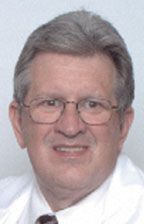Talk to teens now about drug dangers
Published 4:47 pm Friday, July 27, 2007

- Steve Mullenix (R.Ph) is a pharmacist and co-owns The Pharmacy in Mount Olive with his wife, Sherry Mullenix (J.D., R.N.). They can be reached at (205) 631-1201.
Commentary By Steve Mullenix
The North Jefferson News
You might be surprised to find out where some teens are looking to get “high” these days.
It’s the home medicine cabinet. Some teens raid their parents’, grandparents’ and friends’ medicine cabinets for legally prescribed medications. However, they’re legally subscribed for someone else. With pharmaceutical sales at an all time high, and the access to illegal Internet sources, the problem is a growing concern.
The same medications that were prescribed for your father’s root canal pain, if misused, can produce a high. These medications are often too strong for teens and can lead to an additional problem. Teens simply do not realize the contraindications of utilizing certain prescription drugs together. Respiratory depression, coma, death, in addition to accidents and injuries related to being “high” can occur.
The problem of teen prescription use has skyrocketed in the last three to four years. Often these drugs can be highly addictive if used on an ongoing basis, producing a physical, as well as psychological and behavioral addiction.
Research has shown that more teens abuse prescription and over the counter drugs than the “harder” drugs like heroin, cocaine or ecstacy.
A recent survey reported that one out of every 10 (10 percent) high school seniors had used the pain killer Vicodin or similar medications in the last year without a physician’s order.
Roughly the same number had used stimulants like Ritalin. Ever more alarming is that 4.5 percent admitted to having abused the super-potent pain killer Oxycontin.
Although alcohol and marijuana still account for most teen substance abuse, the recent increase in use of inhalants (even common household aerosol containers), stimulants, painkillers and tranquilizers means more kids are putting themselves in danger.
Since these medications are prescribed by a physician and purchased at a pharmacy, a false sense of security that these are legitimate drugs may be felt. Nothing could be further from the truth.
It is never safe to use medications prescribed for someone else. It is never safe to use prescription medications at a higher or even lower dose than prescribed by your physician.The broad range of medications that teens and young adults are using makes the problem even worse, and tougher to stop. Boys seem to like the stimulants, for example Ritalin, amphetamines, as well as steroids.
Girls, on the other hand, are more likely to exploit the “hypnotic” or tranquilizer type drugs like Valium, Xanax or Ativan.
However, the opiods like Oxycontin, Vicodin, or Lortabs are abused by both sexes.
Over-the-counter drugs are not without their concerns as well.
Dextromethorphan, which is the active ingredient in most cough remedies is often called DXM, and can be just as dangerous as a prescription medication. This product can result in a very powerful addiction.
So what’s a parent to do?
If someone in your home has a valid reason for taking these prescriptions, make sure that others can’t get their hands on them.
Know what’s in your medication cabinet, and how much is left. Keep the potential highly abused drugs out of the medicine cabinet and under tighter control.
For short term medication usage such as cough syrups, throw out the remainder when you are through taking it. Discard out of date medications. If you notice your teen is taking cough medications or finding cough medication bottles in the garbage when they don’t have a cold, confront them about it.
But the medicine cabinet is not the only way teens get drugs, There is an alarming trend known as “Pharming Parties” where they swap medications with other teens. They also buy them on the street and order them from Internet sources.
Things to watch for
• Teens receiving deliveries from Internet sources
• Questionable credit card charges
• Changes in behavior
• Drop in grades
• Different friends they are hanging out with
Parents need to wake up to this growing trend and watch for these signs that children may be using medications for inappropriate purposes.
If you suspect this type of behavior, confront your teen and seek help. Even if you don’t suspect your child to be involved in this type of activity, take time to discuss the issue with them.
The best prevention is education.
Steve Mullenix (R.Ph) is a pharmacist and co-owns The Pharmacy in Mount Olive with his wife, Sherry Mullenix (J.D., R.N.). They can be reached at 631-1201.





